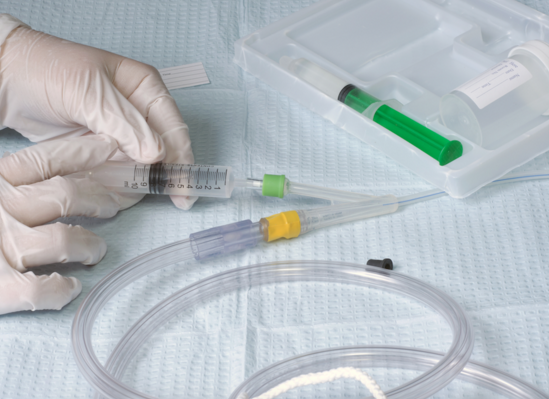Any savvy Urologist knows that the only way to pass the Urology Board Certification Exam is to study. Then study again. Then study even more.
While the studying can prove tedious, it doesn’t have to be a jumble of notes and open books. Many physicians favor question banks as a favorite resource. Taking practice questions simulates real exam conditions, and gives you the perfect way to see what your strengths and weaknesses are before test day.
What is on the Urology Board Exam?
Part 1 of the Urology boards contains 300 multiple choice questions, of which 200 are graded and will count towards your final score. The remaining 100 questions are new “field-test” questions that will not factor into your overall score. Questions cover the following content areas:
- Core Urologic Knowledge: 20%
- Basic Science- Must have a Clinical Correlation: 5%
- Upper and Lower Tract Urinary Obstruction: 10%
- Urolithiasis: 10%+ Core
- Oncology: 25%+ Core
- Andrology: Impotence and Infertility: 8%
- Female Pelvic Medicine Includes Management of Neurogenic Bladder: 12%
- Pediatric Urology: 10%
Are you ready to sit for the boards? See where you stand with three free sample questions taken from the BoardVitals ABU Urology Exam question bank.
Question 1
A 69-year-old diabetic male is evaluated by his primary care doctor for a 30-pound weight loss over the past 6 months and vague right flank pain. Workup reveals a 1 cm right UPJ stone associated with moderate hydronephrosis and 10 cm irregular, enhancing right midpole renal mass. Mag-3 lasix scan shows a non-functioning right kidney and normal left kidney with appropriate drainage parameters. Urine culture is negative and the patient is afebrile with normal vital signs. What is the next step in management?
Answers
A.) Right percutaneous nephrostomy tube and chronic antibiotics
B.) Laparoscopic right radical nephrectomy
C.) Laparoscopic right partial nephrectomy
D.) Open right radical nephrectomy
E.) Right ureteral stent placement
Correct Answer
Correct answer: (D) Open right radical nephrectomy. Explanation: This presentation is concerning for xanthogranulomatous pyelonephritis (XGP), however XGP cannot be differentiated from renal malignancy on imaging. The kidney is nonfunctional and there is no evidence of active infection, so PCN or stent would not be indicated. The patient requires surgical removal of the right kidney. An open approach is generally recommended in setting of possible XGP as the inflammatory reaction can extend beyond Gerota’s fascia into adjacent structures making surgical removal challenging.
Reference
Schaeffer AJ and Schaeffer EM. Infections of the Urinary Tract. Campbell-Walsh Urology, 10th Edition: 257-326,2011.
Question 2
A patient undergoes a nephrectomy for a solid renal mass, which was identified incidentally during a workup for kidney transplant. The tumor is noted to be a 4 cm solitary renal cell carcinoma with no evidence of spread, Furhman grade 1. What sort of waiting period would this patient require before being cleared for transplant?
Answers
A.) No waiting period – patient can be cleared immediately.
B.) 2 years
C.) 5 years
D.) Patient can never be considered for transplant as there is always going to be a risk of recurrence after transplant immunosuppression.
Correct Answer
(A) No waiting period – patient can be cleared immediately. Explanation: Patients with cancers discovered pre-kidney transplant listing will need evaluation for risk of recurrence after transplant. This will vary based on type, grade and stage of the cancer. An incidentally discovered renal cell cancer < 5 cm and low Fuhrman grade will need no waiting period before clearance for transplant.
Reference
Bunnapradist S, et al. Am J Kid Dis 2007; 50(5): 890-898.
Question 3
A 45 year old woman has recurrent calcium oxalate kidney stones. Her serum calcium is 9 mg/dL, urine calcium is 300 mg/24 hr and her PTH is 90 pg/mL (normal < 65). You start her on hydrochlorothiazide 25 mg twice daily and two weeks later her calcium level has gone up to 11 mg/dL. What management does she need?
A.) Increase her dose of thiazide
B.) Decrease her dose of thiazide
C.) Dietary calcium restriction
D.) Change to a different thiazide
E.) Parathyroidectomy
Correct Answer
- This is incorrect. The patient has had an increase in serum calcium on a thiazide, so this suggests she has primary hyperparathyroidism. B. This is incorrect. The patient has had an increase in serum calcium on a thiazide, so this suggests she has primary hyperparathyroidism and needs surgery, not a medication change. C. This is incorrect. The patient has had an increase in serum calcium on a thiazide, so this suggests she has primary hyperparathyroidism and needs surgery, not dietary changes. D. This is incorrect. The patient has had an increase in serum calcium on a thiazide, so this suggests she has primary hyperparathyroidism and needs surgery, not a medication change. E. This is the correct answer. The patient underwent a “thiazide challenge test” and failed. This creates mild hypercalcemia and allows the diagnosis of primary hyperparathyroidism in cases where the serum calcium and PTH levels are not sufficient for diagnosis.
Reference
Eisner and Stoller, J Endourol. 2009 Feb;23(2):191-2.
How did you do? The Urology boards are fairly straightforward, and in 2022 the pass rate for first-time test takers at 99%. Keep studying and you’ll be board-certified in no time!
Looking for more ways to study? The BoardVitals Urology Question Bank contains more than 700 Urology practice questions targeted to the content outline for the American Board of Urology (ABU) Qualifying (Part 1) Exam. Sign up for a free trial today!




